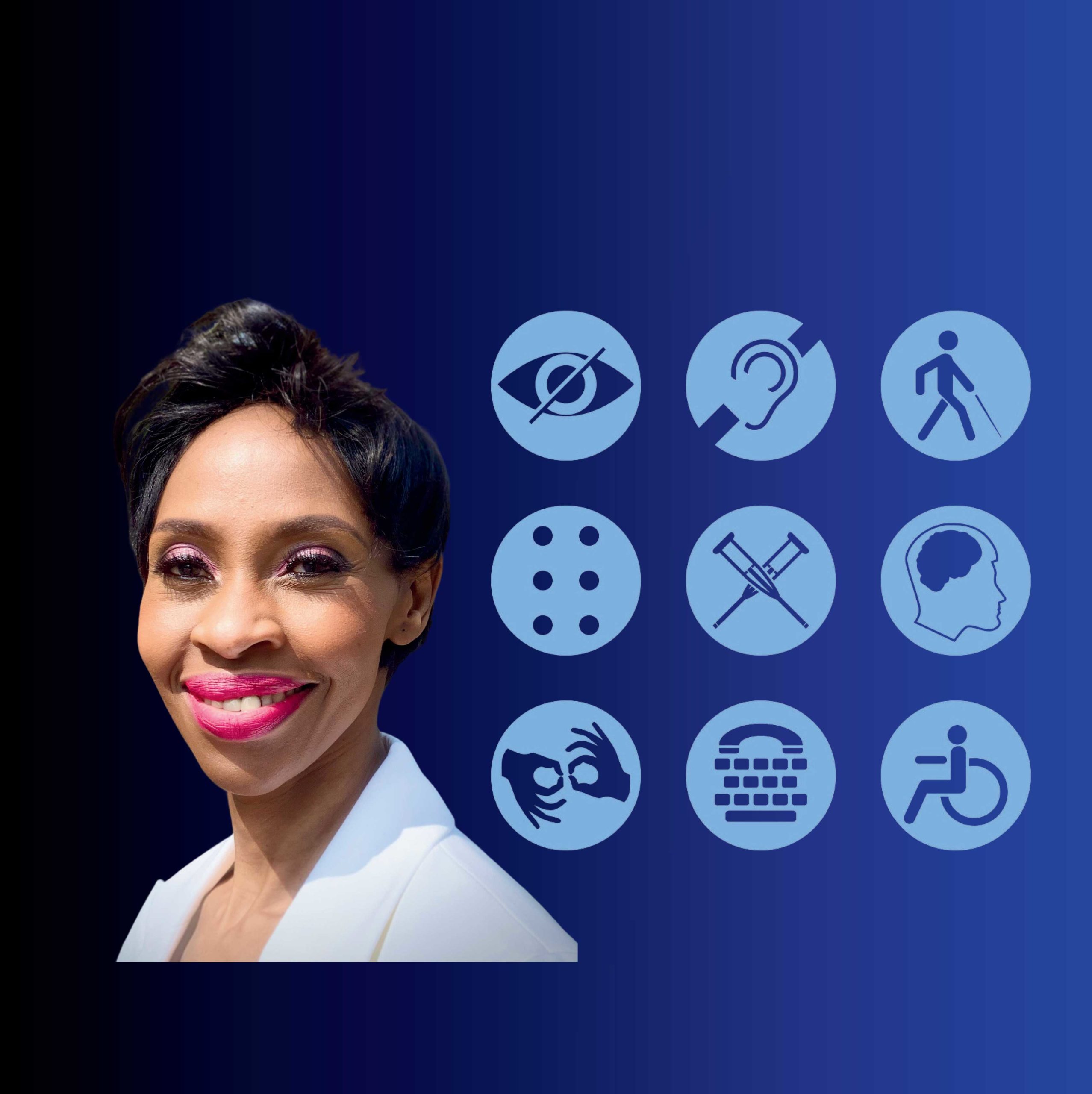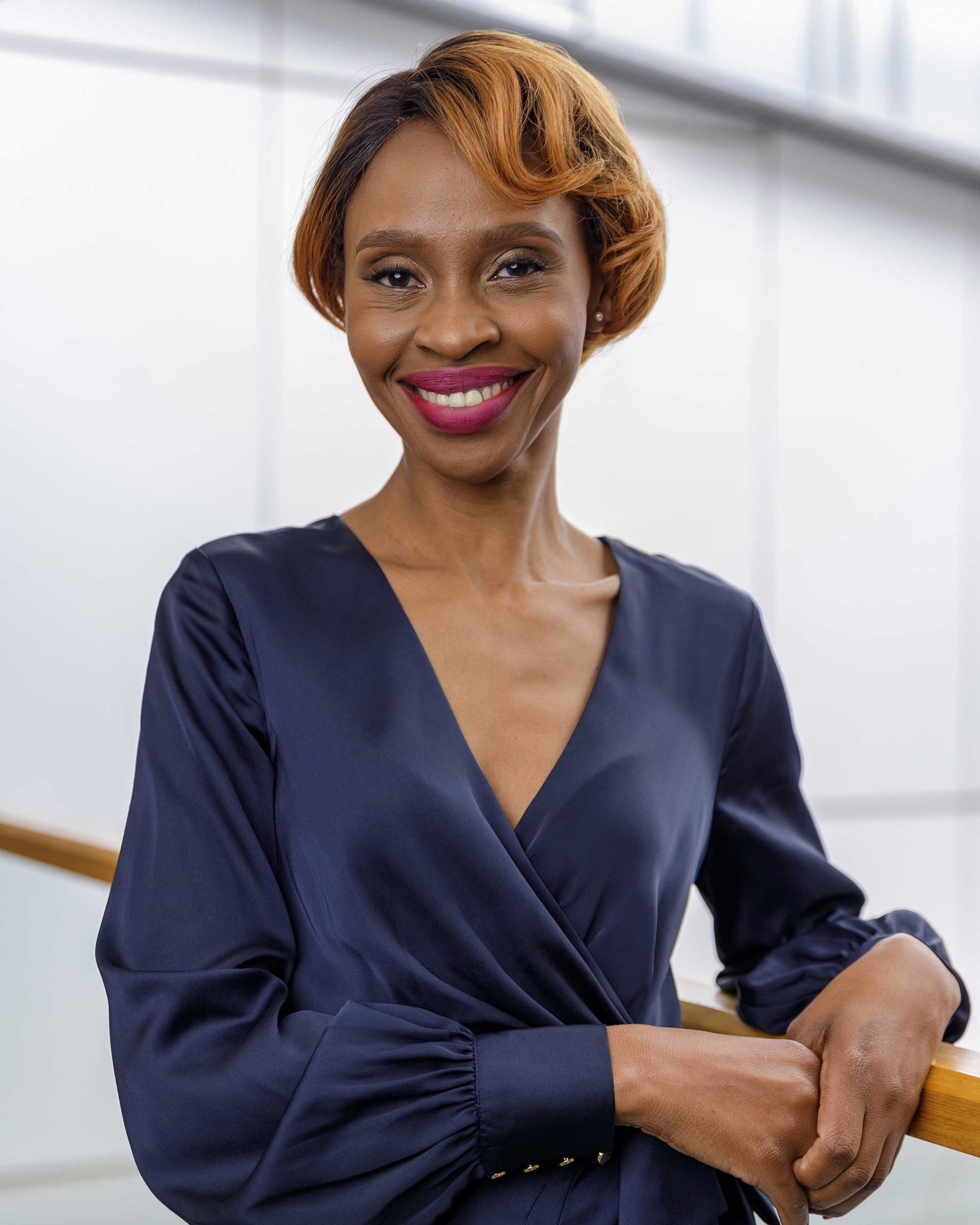WE LIVE In a country with one of the most progressive constitutions in the world; designed to not just to address the pain of the past but also lay the foundations for a progressive society that could be the envy of the world. Our Equity Act is one of the laws that underpins this; outlawing discrimination in the workplace and encouraging diversity, but there is still a very long way to go on this particular walk to freedom.
We have made such good progress in many areas; especially where it comes to achieving racial and gender diversity, even though many black and female South Africans might beg to differ, and there are real pockets of excellence. One area though that remains incredibly under-represented is people with disabilities.
Whether they want to or not, people drawn from these different areas become ambassadors and beacons of hope for everyone. It is difficult to aspire to the top when there isn’t a role model who looks like you, speaks like you or who even faces the same challenges that you do.
And yet, I must tell you, that as an executive recruiter it is difficult to find candidates with disabilities. I think there are two reasons for this: the first is that many people with disabilities choose not to go down this route because of the many challenges they face in the process. The second is that the many employers are not equipped to employ people with disabilities, either practically or emotionally.
Judged on merits; not race
The first case is easy to understand, because I am a black woman, so I tick two of the three potential equity boxes: I want to be judged on my merits; not my race or my gender – unless either are critical to the job that I am being considered for. I don’t want to be a quota candidate. I worked too hard at university and in my career to be considered anything than what I am: ambitious, qualified, extremely capable and highly professional.
Which brings me to the second issue, because believe it or not they are often related. There are companies that are downright unfriendly; no ramps, door frames that are too narrow, unsuitable washroom areas and desks that are too low to accommodate wheelchairs. But those can be simply fixed, narrow attitudes are far more difficult to widen.
There are companies who employ people with disabilities and then prevent them from having a voice, almost as if they are doing those people a favour by giving them a job in the first place. These people are forced to keep quiet, regardless of the significant contribution they are making or the insight they are bringing to the table. That’s not what equity is about; giving people the right to work is just the start. What progressive companies need to do is give people a voice and empower them to speak without fear of recrimination – or victimisation.
There is strength in diversity and opportunity too
Building progressive companies is not just the ethical thing to do. It’s the clever thing to do, because you unlock the potential of the people that work for you. This radically impact the bottom line for the better in the process. But you can only do that by treating them as equals – and letting them see themselves as equals too. It must never be a box ticking exercise to try and win points with the Department of Labour. Or to look good in a company profile. There is strength in diversity and opportunity too. Both of which are borne out by countless academic studies. Yet some of our top business executives are blind to this, obviously wilfully so.
For people with disabilities working in organisations like these, it isn’t worth the hassle of speaking out and being tarred as a disruptive outlier for showing up the hypocrisy. This just goes to show the importance of not just creating a diverse workplace but empowering and enabling people within it. Companies have to be intentional about this.
It starts with teaching able bodied staff about disability to show. As one of my colleagues with a disability pointed out to me, that we are all the same aside from our physical differences. Prejudice exists because people are not taught how to engage with people with disabilities. When we learn this, we accept the folly and the hurt that our prejudice creates.

We can fight prejudice
We can fight this prejudice, we have done it on the battlegrounds of race, gender and sexual orientation, we can – and we must – do it here too.
Ensuring that people with disabilities are represented at boardroom level means that disability will always be on the agenda. And properly so. It means that the workplace will be somewhere that people with disabilities can work without stressing about their disabilities. This will allow them to be free to perform their jobs well.
We shouldn’t even be having this conversation but here we are because it is only by focusing on the issue that we bring about change. These days no one thinks twice about a candidate’s race, gender or even sexual orientation. But not too long ago those were all insurmountable barriers, if not to employment then certainly to promotion.
Companies can’t do it on their own
We have progressed as a country and as a society. The days of the cis-gendered, homophobic white old boys’ clubs are over. But they were not just wished away, they had to be legislated against and then changed from within. We have to do the same with disabilities. It’s a battle ground that is as important, because to paraphrase Nelson Mandela; we cannot be free as long as some of us remain in chains. The truth is people with disabilities mostly remain imprisoned because of existing and unchallenged prejudices against them.
Laws are only as good as the paper they are written on unless they are implemented and used as instruments for change. However, companies can’t do it on their own. Companies cannot become women friendly, without female representation at the highest level. Business cannot become diverse and black friendly without black managers across all the rungs of the corporate ladder. Disability is no different.
Change happens from within and we need people with disabilities to champion this. Put yourselves forward to become part of that change. It will be difficult, just as it was for Rosa Parks or any other person who had to be the first to break the glass ceiling, but your reward will be knowing that you made it easier for the generations who came after you. This and that you reaped your just rewards in the process.
Lucia Mabasa expresses an expert opinion in this article
- Lucia Mabasa is a chief executive search specialist of pinpoint one human resources, a proudly South African black women owned executive search firm.
- pinpoint one human resources, provides critical C-suite solutions across industries, sectors and professional disciplines, in South Africa and across Africa.
- This article was posted on IOL.





